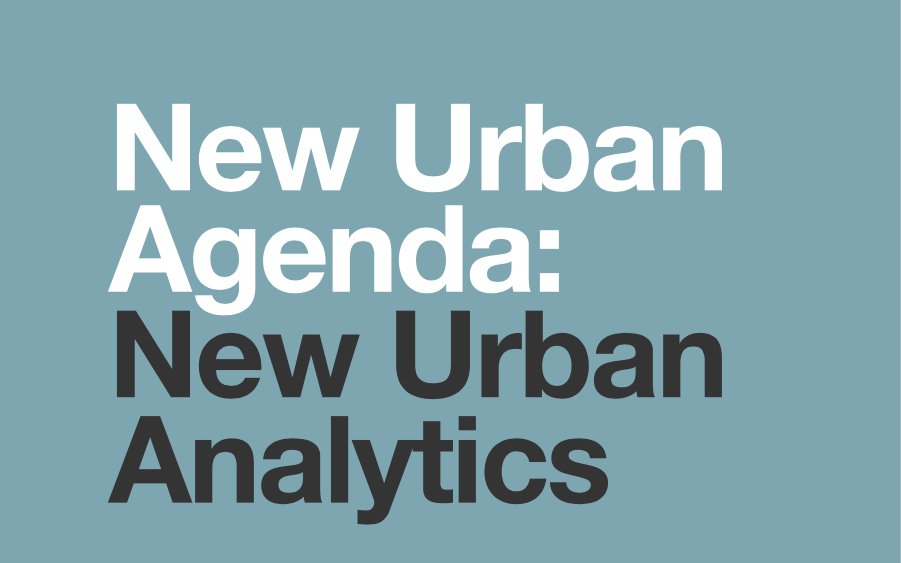New Urban Agenda: New Urban Analytics
New Urban Agenda: New Urban Analytics | A Report Prepared for the MacArthur Foundation

18 March 2020
Download New Urban Agenda: New Urban Analytics (PDF) (2020)
Foreword
There are many initiatives being developed by government and the private sector which essentially are beginning to automate the work of local authorities and related agencies in terms of new information technologies. The landscape for the introduction of these new services and activities is complex and difficult to navigate. In this report, Janice Morphet and Robin Morphet lay out this landscape, providing a road map so that we can explore what is happening, rst in general terms and then more speci cally with respect to what is happening in the United Kingdom (UK).
What is fascinating about what they reveal is the plethora of initiatives, many overlapping each other in the same places, all inspired by a concern for delivering government more e ectively to the people. A road map like this is essential if we are to get to grips with what is going on and in this report, the authors have painstakingly researched the terrain providing a catalogue of initiatives and their sources. Readers who want to explore this terrain for themselves will nd that the report is meticulously sourced through references and web sites, thus providing as near a comprehensive resource as possible, given the rapidly shifting nature of this terrain.
This report is part of our project funded by the Macarthur Foundation dealing with Urban Informatics and the Smart City in terms of initiatives that are being developed in the UK. The smart city as the authors point out, is a much-overworked term and in some contexts, it is now being used to relate to all city activities. Indeed for many of those who have come to look at cities more recently, the smart city is the city. But here the authors make a very clear distinction between the development of new information technologies and the role of government and planning in traditional terms, showing how these new technologies are complementing as well as supplementing previous and present practices. The report also charts the complex organisation structure of government in the UK and the many new agencies that have been formed in the last twenty years as government has attempting to respond to an ever increasingly complex world which is being continually infused by new information technologies. The report makes the point that such complexity needs to be managed and although it stops short of providing a template for the future – for it is impossible to know how new information technologies will play out in practice due to the rapidity of their development – it does provide important markers for what this future will be like. It is one of the few reviews of a complex field that is forever changing.
Professor Michael Batty
The Bartlett Centre for Advanced Spatial Analysis (CASA), University College London (UCL)
18 August 2019
 Close
Close

